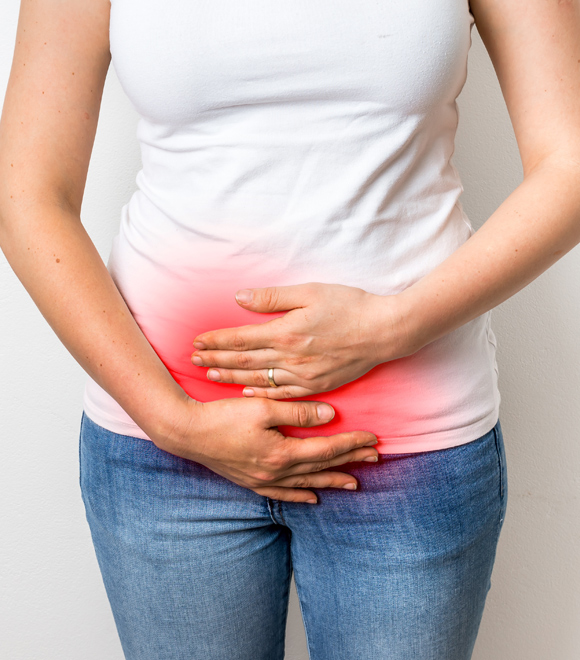
Heavy Bleeding/Irregular Periods/Pain During Periods
Heavy Bleeding/Irregular Periods/Pain During Periods
If you’re experiencing heavy bleeding, irregular periods or pain during your menstrual cycle, it’s important to consult with a healthcare professional for an accurate diagnosis and appropriate treatment options. Some of the reasons are given below:
Fluctuations in hormone levels can disrupt the normal menstrual cycle, leading to irregular periods, heavy bleeding and pain. Conditions such as polycystic ovary syndrome (PCOS) or thyroid disorders can contribute to hormonal imbalances.
These noncancerous growths can develop in the uterus and cause heavy menstrual bleeding, pain and irregular periods.
PID is an infection of the female reproductive organs, often caused by sexually transmitted infections (STIs). It can cause irregular bleeding, pelvic pain and discomfort during periods.
Treatment Heavy Bleeding / Irregular Periods / Pain During Periods
Methods such as birth control pills, hormonal patches, hormonal intrauterine devices (IUDs) or contraceptive injections can help regulate menstrual cycles, reduce heavy bleeding and alleviate pain. They work by stabilizing hormone levels and thinning the lining of the uterus.
Progestin, a synthetic form of the hormone progesterone, can help regulate menstrual cycles, reduce heavy bleeding and relieve pain. It can be administered through pills, injections or intrauterine devices.





